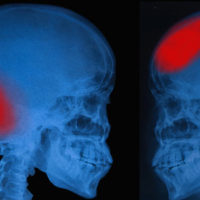The Growing Link between Neuroscience & Criminal Defense

According to this recent article by Scientific American, neuroscience is playing a larger part in criminal defense cases every day. This neurological evidence is typically introduced in the form of behavioral tests, brain scans, and psychological evaluations; sometimes even as grounds to question the competence of legal representation previously received.
As a result, a committee formed within The National Academies of Sciences, Engineering and Medicine met in Washington, DC on March 6th to discuss admissibility of this type of evidence in court. The committee addressed such topics as how neuroscience and genetics should be used in the courtroom, as well as how EEG tests and functional magnetic resonance imaging could be used to reconstruct what someone saw, with the help of computer algorithms. This meeting could have broad implications for establishing standards under which how neuroscience can be used in the courtroom in moving forward.
The Link between Brain Damage & Behavior
What does the use of neuroscience in forming a criminal defense in the courtroom look like? It tends to come up in contexts where scientific evidence indicates that criminal defendants have severely abnormal brains, or brain tumors that might affect their behavior, and this becomes relevant to their criminal defense. These arguments hinge on the argument that brain scans can identify areas of behavioral dysfunction and lack of impulse control.
In fact, the incidence of brain tumors and crimes allegedly committed has a strong history in American crime. Some accused of murder have complained of having severe headaches and turned out to have brain tumors located between the amygdala, which regulates emotion and behavior, and the thalamus, which relays motor and sensory information. While it is difficult to definitely say that a tumor directly caused an individual to kill someone, experts have indicated that tumors like these can contribute to the inability to control actions and emotions.
In this way, the criminal justice system is stacked against a criminal defendant, as the defense of insanity hinges on one’s ability to distinguish between right and wrong, and it is extremely difficult to prove that a tumor qualifies someone as legally insane.
Genetic Explanations Debunked
The committee also reportedly addressed the role of genetics in the courtroom; a role that may be declining as neuroscience plays a stronger role in criminal cases and scientists uncover more about the link between brains and behavior, and the science linking criminal tendencies with genetic mutations fails to prove substantial. Committee members have noted that the role of brain scans in the courtroom will likely only increase.
Florida and Massachusetts Criminal Defense Attorneys
If you have been accused of a crime, you need to work with a criminal defense attorney who understands the latest updates in the link between neuroscience and criminal defense.
At The Baez Law Firm, we do our own testing because we understand the growing importance of these types of tests. Contact us today to find out how our Orlando criminal defense attorneys can help.
Resources:
scientificamerican.com/article/my-brain-made-me-do-it-is-becoming-a-more-common-criminal-defense/
.latimes.com/opinion/op-ed/la-oe-davis-neuroscience-criminal-court-brain-damage-brain-scans-20170503-story.html
